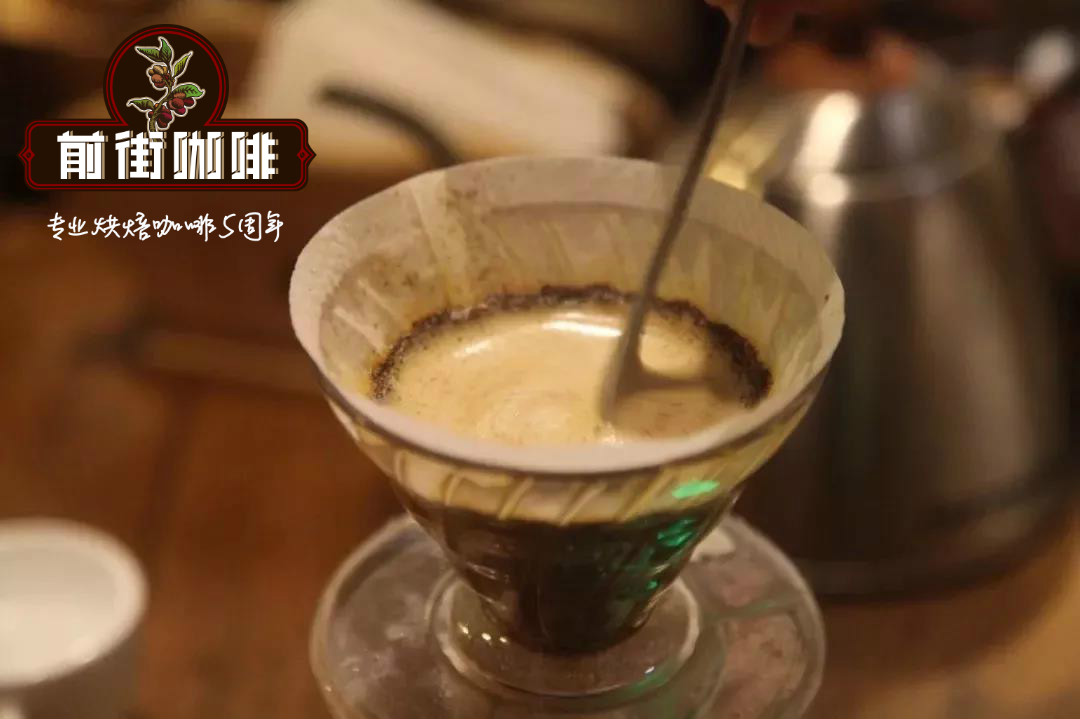Why are Yemeni coffee beans called mocha coffee? what does Yemeni mocha have to do with mocha?

Professional coffee knowledge exchange more coffee bean information please follow the coffee workshop (Wechat official account cafe_style)
Yemeni mocha has outstanding flavor characteristics and obvious sour taste, so it is easy to taste cocoa, and the cocoa concentration increases with the concentration of coffee. Naturally, when making coffee, people will add hot cocoa to it to make fancy mocha coffee that can better appreciate the unique flavor of mocha.
Originally from Yemen, Mocha is the first country in the world to grow a lot of coffee. So far, coffee growers in Yemen still retain the way their ancestors planted and processed coffee 500 years ago. Although most Central and South American countries have used machines to process coffee beans and are quite efficient, Yemenis still use ancient ways such as camels or donkeys to promote stone grinding to process coffee beans. they are the only living fossils of the history of coffee processing in the world. Therefore, it is very different from Blue Mountain Coffee, and the mocha coffee we can taste today is almost exactly the same as the mocha coffee drunk by the aristocracy and the common people in Europe hundreds of years ago.
Although Yemen is rich in Mocha, Mocha is not an "indigenous people" of Yemen. Mocha's ancestors originally grew up in Ethiopia. In 575 AD, the coffee beans floated across the Red Sea to Yemen on the other side, where they took root and became famous all over the world. In the early 17th century, Yemeni coffee was first exported to Europe through the ancient port of Mocha, which was named "Mocha Coffee" after the port where it was exported.
Yemeni mocha plays an important role in the spread of coffee. It is the birthplace of coffee trade and sells coffee to all parts of the world through various channels. Mocha coffee has another name-Arabica Coffee, which is a new name for mocha in Catholic countries in Europe. Since then, Yemeni mocha coffee has been the only coffee exported to Europe for at least 150 years. In fact, Mocha has just entered Europe, and the locals are confused by it. Because mocha coffee tastes so delicious, the Vatican religion never resists coffee. They include it in Catholic drinks and bless those who drink it. From then on, coffee began to be accepted by Europeans.
Although Ethiopia is the first country in the world to produce coffee, it is Yemen that has brought adzuki beans to the world and is well known by people all over the world. Therefore, coffee is an important pillar industry in Yemen and a spiritual symbol of the Yemeni people. There are coffee trees on the national emblem of Yemen.
Today, mocha coffee is famous all over the world, but who knows that there is such a strange relationship between the busy port of many ships before the 18th century and the mocha coffee today.
Yemeni mocha coffee (Yemen Mocha)
Yemen, located by the Red Sea, is an ancient Arab country. Since ancient times, Yemeni coffee has been grown by itself, and the whole process of cultivation and treatment depends entirely on manual work. Coffee beans are naturally dried in the sun, and the beans are small and strong. Originated from the Yemeni city of Muke, so Yemeni coffee is mocha coffee. Yemeni coffee is a traditional high-quality coffee with a special clear taste, with a hint of wine flavor and natural sour taste.
Origin: Matali (Mattari) producing area of Bany Matar province in northern Yemen < Yemen is a South-West Asian country. >
Height: 1000-3000 m
More information on raw beans: beans originated in Ethiopia. Drying treatment, solarization, manual removal of skin
Acid: *
Gan: *
Bitter: *
Alcohol: *
Incense: *
Qianjie coffee: Guangzhou bakery, the store is small but a variety of beans, you can find a variety of unknown beans, but also provide online store services. Https://shop104210103.taobao.com
Related recommendation: what is mocha coffee? Yemeni mocha-Matali sun beans are the real mocha coffee beans in Yemen
Important Notice :
前街咖啡 FrontStreet Coffee has moved to new addredd:
FrontStreet Coffee Address: 315,Donghua East Road,GuangZhou
Tel:020 38364473
- Prev

The difference between Sanani mocha beans and mocha coffee in Yemen what is the difference between Yemeni mocha coffee
Professional coffee knowledge exchange more coffee bean information please follow the coffee workshop (Wechat official account cafe_style) Yemen (Yemen) Yemen is commonly known as Arabia, the birthplace of the Arabica species, was once popular in the name of mocha coffee, but now the event is no longer. However, with its wine-like flavor and rich flavor, it is still quite popular with consumers.
- Next

Yemen Mocha Hirazi Region Ismaili Wild Mocha Coffee Bean Features Taste Origin
Professional coffee knowledge exchange More coffee bean information Please pay attention to coffee workshop (Weixin Official Accounts cafe_style) Yemen Mocha Hirazi production area Ismaili wild coffee varieties flavor? The origin of wild coffee is probably Ethiopia in northeast Africa. In the 15th century AD, it spread to Yemen in southern Arabia and was cultivated artificially. ten
Related
- Detailed explanation of Jadeite planting Land in Panamanian Jadeite Manor introduction to the grading system of Jadeite competitive bidding, Red bid, Green bid and Rose Summer
- Story of Coffee planting in Brenka region of Costa Rica Stonehenge Manor anaerobic heavy honey treatment of flavor mouth
- What's on the barrel of Blue Mountain Coffee beans?
- Can American coffee also pull flowers? How to use hot American style to pull out a good-looking pattern?
- Can you make a cold extract with coffee beans? What is the right proportion for cold-extracted coffee formula?
- Indonesian PWN Gold Mandrine Coffee Origin Features Flavor How to Chong? Mandolin coffee is American.
- A brief introduction to the flavor characteristics of Brazilian yellow bourbon coffee beans
- What is the effect of different water quality on the flavor of cold-extracted coffee? What kind of water is best for brewing coffee?
- Why do you think of Rose Summer whenever you mention Panamanian coffee?
- Introduction to the characteristics of authentic blue mountain coffee bean producing areas? What is the CIB Coffee Authority in Jamaica?

